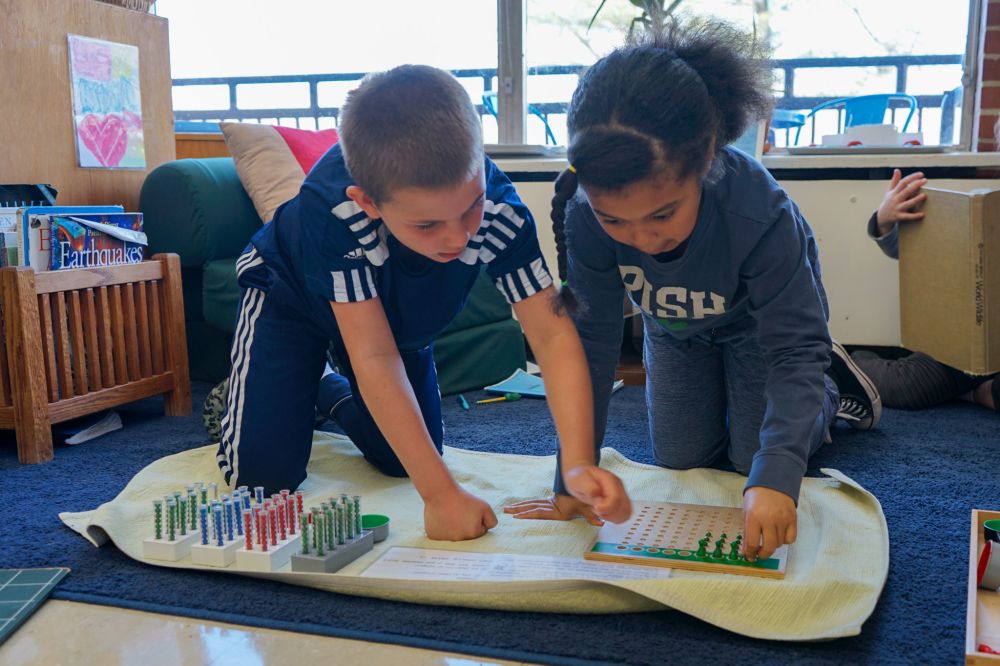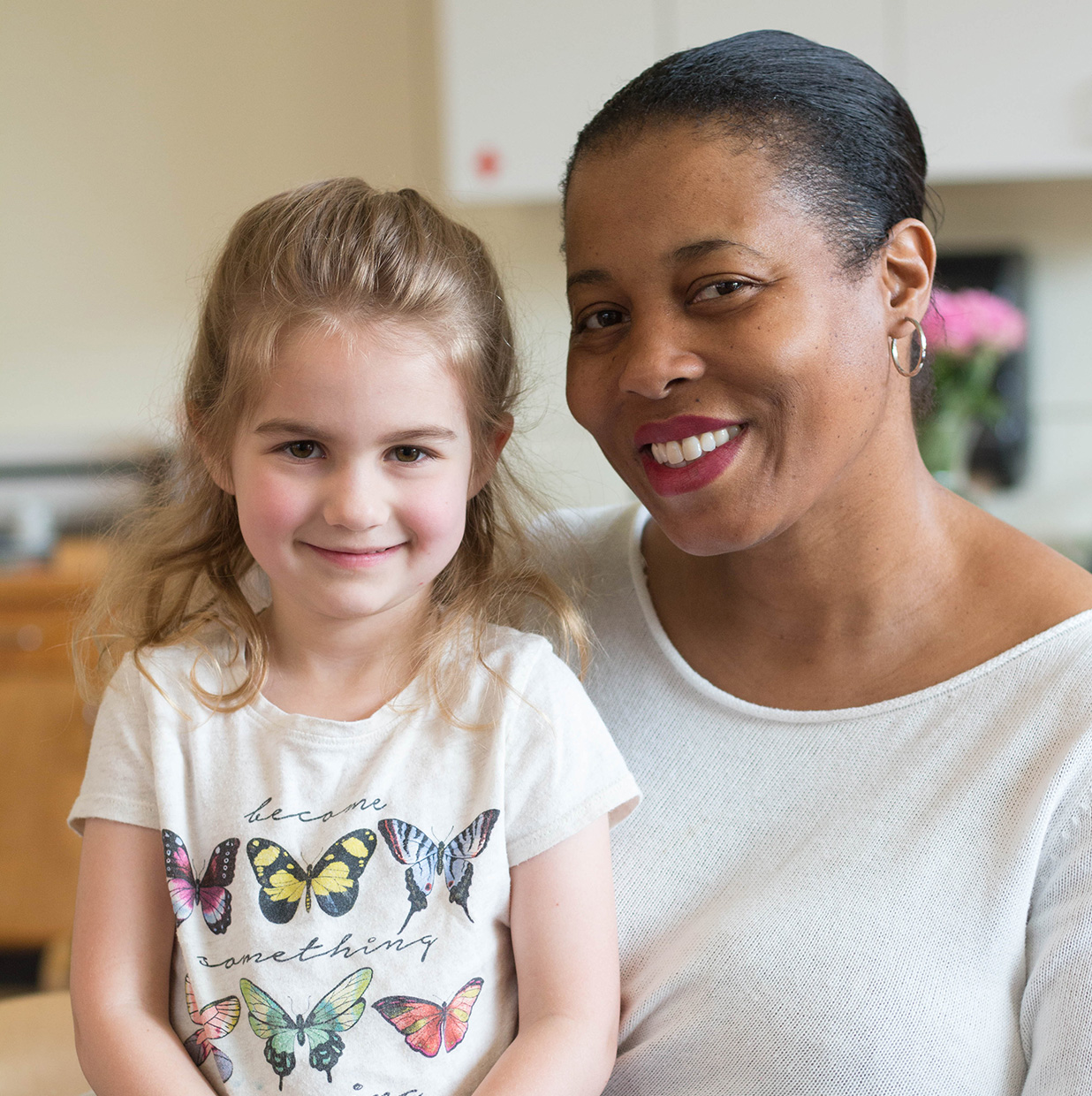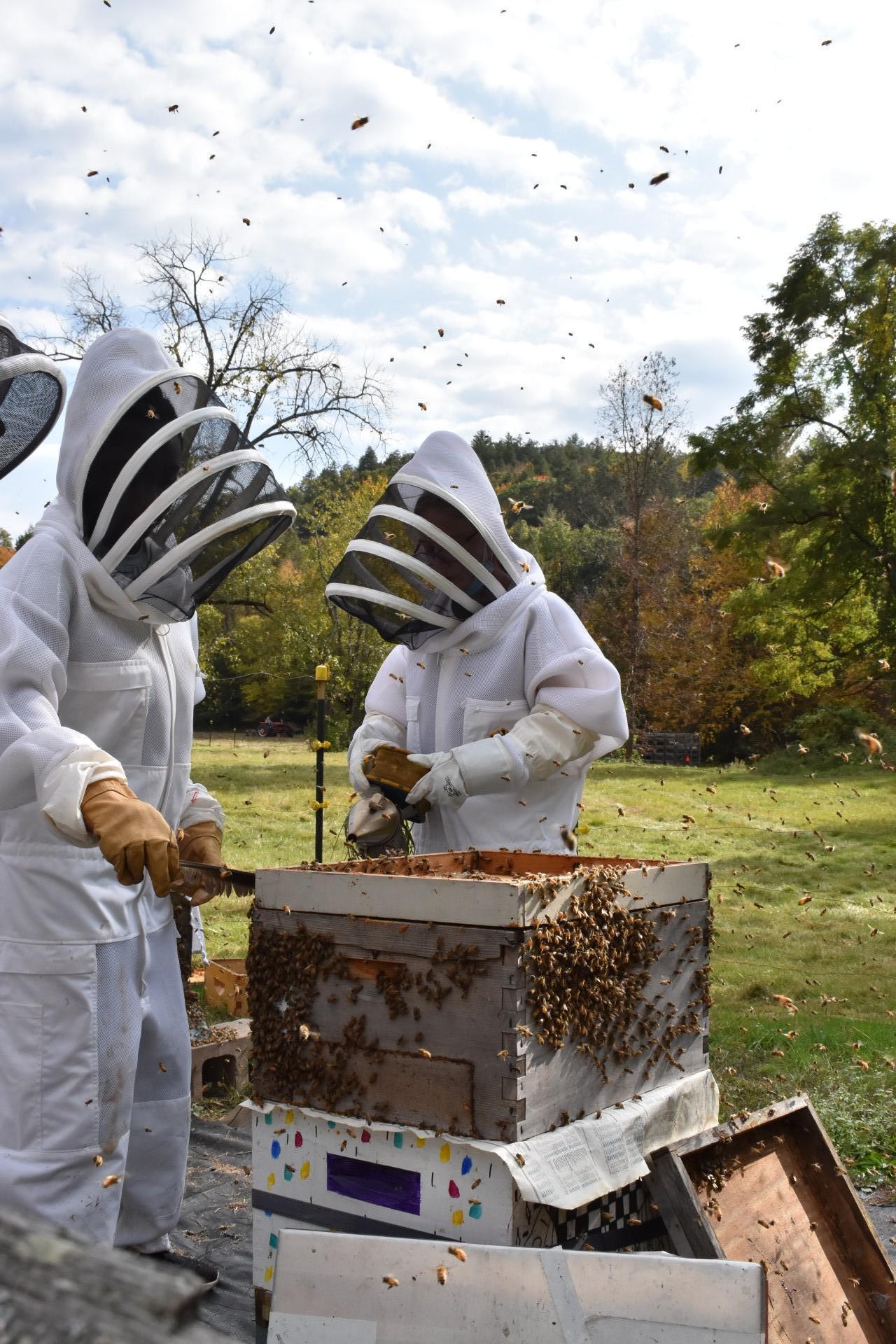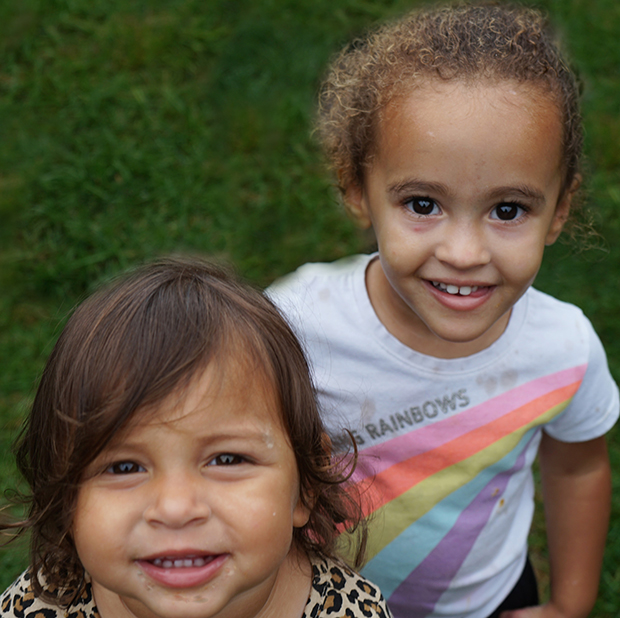The Power of Choice and Decision Making
April 2nd, 2025
The Power of Choice and Decision Making By Carlie Taveras, Lower Elementary Teacher “The freedom that is given to the child is not liberation from parents and teachers; it is not freedom from the laws of Nature or the state of society, but the utmost freedom for self-development and self-realization compatible with service to society.” (Maria Montessori, What You Should Know About Your Child). According to research, the average adult makes approximately 35,000 decisions a day while the average child makes about 3,000. A lot needs to happen to prepare children to be capable of making many decisions in their childhood and eventually pave the way to effectively make the exponentially greater number of decisions they will need to in their adult life. Learning to make thoughtful and informed choices is an essential skill. We are born with capacity, not with the ability to make decisions and it is through the opportunities to make independent choices that the child develops the ability to envision future consequences of their actions. Children need to be granted the space and freedom to choose. Through this autonomy, children learn responsibility—not just for their actions, but for the impact of their actions. Making Choices: A Powerful Tool in Development Allowing children to make choices is an important way to support their development, particularly when it comes to building self-control and learning how to self-monitor. When children are given the autonomy to make decisions, they are encouraged to consider the consequences of their actions and the implications of their choices. This process helps them develop a deeper understanding of how their actions affect themselves and others, which is an essential skill for self-regulation. Giving children choices aids the continued strengthening of the will (doing something with conscious intent). Self-control is developed from having the opportunity to be in control and make decisions for oneself. When children make decisions, they become more accountable for their actions. This sense of accountability promotes a stronger internal desire to control their impulses, as they learn that their decisions have consequences. When children make decisions, they practice problem-solving. They learn to assess situations, think critically about their options, and predict the consequences of their choices. This encourages self-monitoring because they begin to anticipate the results of their behavior and adjust accordingly to avoid undesirable outcomes. Having the freedom to make choices boosts a child’s self-esteem, as they feel empowered and valued. Confidence can be built through choice. A confident child is more able to make thoughtful decisions in the future and trust their ability to navigate challenges on their own. “Children learn how to make good decisions by making decisions, not by following directions” (Alfie Kohn, Unconditional Parenting). As children see the positive outcomes of their choices, they are more likely to continue making thoughtful decisions and learn to monitor their actions more effectively. These skills are foundational for their emotional and cognitive development and will serve them well. Every decision a child makes comes with a consequence, and children begin to recognize that responsibility lies in their choices. Freedom with Responsibility There is a conception that freedom is all good and lifts us up and responsibility is a burden that brings us down when, in fact, responsibility can truly build us up. This is evident when you give children responsibilities, and they develop this pride and confidence as they become aware of their great capabilities. On the flipside, when given too many choices, freedom can actually bring us down. Along with freedom comes responsibility. Freedom with responsibility is the premise of guiding the elementary child in the greater development of independence and becoming a responsible member of the community. In the elementary environment, children are given the freedom to make choices and decisions. The child has a clear understanding that they are also responsible for the outcomes of those decisions and how their decisions can often impact not just themselves, but the greater community. Freedom of choice is limited according to the stage of development the child is in and their ability to exercise their freedoms in a healthy way. At the elementary level, responsibility really takes a major shift from the adult to the child. Children are actively involved in making decisions each day. With each freedom comes duties. In the elementary work cycle, there are three main freedoms of choice that exist: freedom to choose your work, where to work, and who to work with. Each freedom comes with its set of limits. With the freedom to choose work, there are many things the child can do and there are also things that must get done. All of these choices not only impact themselves but can have an impact on the whole community. Aids to the Development of Freedom with Responsibility in the Elementary Montessori Environment As the adult in the Montessori environment guides the children towards reaching their fullest potential, it is critical for clear expectations to exist. Having clear expectations supports the child in working towards their potential. When given expectations, children will work towards meeting them to the best of their abilities. As adults, we possess the responsibility to balance the freedoms with the necessary responsibilities. The child possesses much autonomy in the environment while understanding the expectations. Through observation, we can have a clear picture as to the degree each child appropriately exercises their freedoms of choice and, if necessary, come up with ways to support the child in being able to manage their freedoms more effectively. The role of the adult is to help children understand the balance between freedom and responsibility by fostering an environment where they are empowered to make decisions while being held accountable. Through this process, children learn to trust themselves and their decision-making abilities. They understand that with freedom comes the need for thoughtful choices and the ability to take responsibility for those choices.
The environment is prepared in such a way that aids in the development of freedom with responsibility. Limited materials encourage the child to make conscious choices and exercise their freedoms in a responsible manner. The care of the environment is a community effort and takes participation of all. This is a responsibility not just to themselves but to the greater community as it allows the child to contribute to the shared environment in a purposeful way. Through such responsibilities, the child moves towards greater independence. By having this duty, the children take such pride and care in their environment. The limits of freedom that exist in the environment protect the child and the environment and are necessary for freedom to exist. Children have the freedom to choose how to allocate their time in the work cycle. When children are making choices, they are exercising their free will. Through the child’s active work, he or she gains the necessary tools to exercise freedom, and it is the will that acts as the agent of freedom and discipline. The work diary is a tool that allows the elementary child to take responsibility for their work. This is where the child records the presentations they are given and the independent work choices they make each day. The child also records their start and stop times for each work choice to help self-monitor and work towards effective time-management skills. The children bring their work diaries to their weekly meetings with me, and we look over them together. This is not meant to be a judgmental process but rather a guide that allows the child to self-evaluate in an honest way that doesn’t diminish their self-worth but rather makes them proud of all of their accomplishments and inspires them to develop future goals for themselves. As the child becomes more responsible with their work diary, they begin to independently self-evaluate as they go through their work cycles which help guide their choices each day. The benefits of decision-making extend far beyond the Montessori classroom. Children who grow up in an environment that encourages choice are more likely to develop into confident, independent adults. By allowing children to make decisions, they are not just learning how to choose, but also how to accept responsibility, reflect on their experiences, and think critically about the world around them. Decision-making is not just about the outcome, but about the process. Supporting This Work at Home Providing your child with decision-making opportunities will help support the work that we are doing in the classroom. When children are permitted to make decisions, even seemingly minor ones, it supports the development of their critical thinking skills, and they begin to develop a greater understanding of the cause and effect of their actions. Children need the opportunity in all their environments to be trusted to make their own decisions. It is important to allow your child the opportunity to make decisions that result in both successful and unsuccessful outcomes. It can be hard to see your child not succeed but it is crucial for the child to have these opportunities. When you can afford to let the child make a mistake, allow them. Be gentle with the failures that may arise, they’re bound to make them. A lot of times it is okay for the child to be stuck with the consequences of making a choice that wasn’t so good. It is important that we reserve from placing judgement on their decisions by criticizing bad outcomes and praising good outcomes and that we continue to provide the child with opportunities to continue to learn and grow in this area. Through this, children become able to take ownership of the consequences. Allowing the child to take ownership of their actions builds valuable life skills. You can empower your child by giving them opportunities to be active participants in decision-making whenever possible. If they are currently used to a routine where they have minimal autonomy or are not exhibiting confidence in making choices, start small. Every single choice they can make has its benefits. Let them choose the outfit or the meal. Let them follow the instructions to the experiment or recipe they choose and fight the urge to save them from their mistakes (when you can afford to). While I have recommendations, I also understand the reality of our busy lives and balancing work, home duties, and children. It can be a lot; we can’t always afford the consequences of their not so carefully thought-out decisions. Each decision, no matter how small, is an opportunity for children to grow, learn, and develop essential skills that will benefit them for a lifetime. By providing children with the freedom to make their own choices, we help cultivate individuals who are not only capable of thinking for themselves but are also prepared to take responsibility for their actions in an ever-changing world. |














